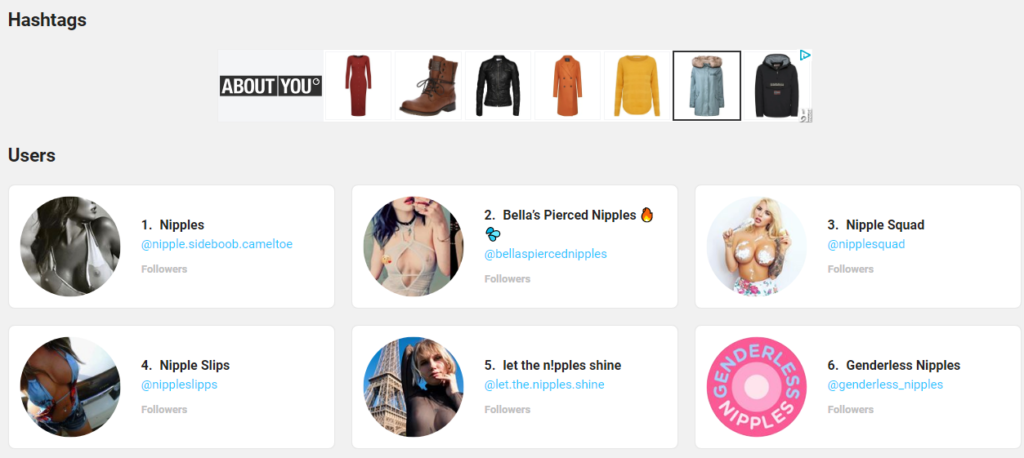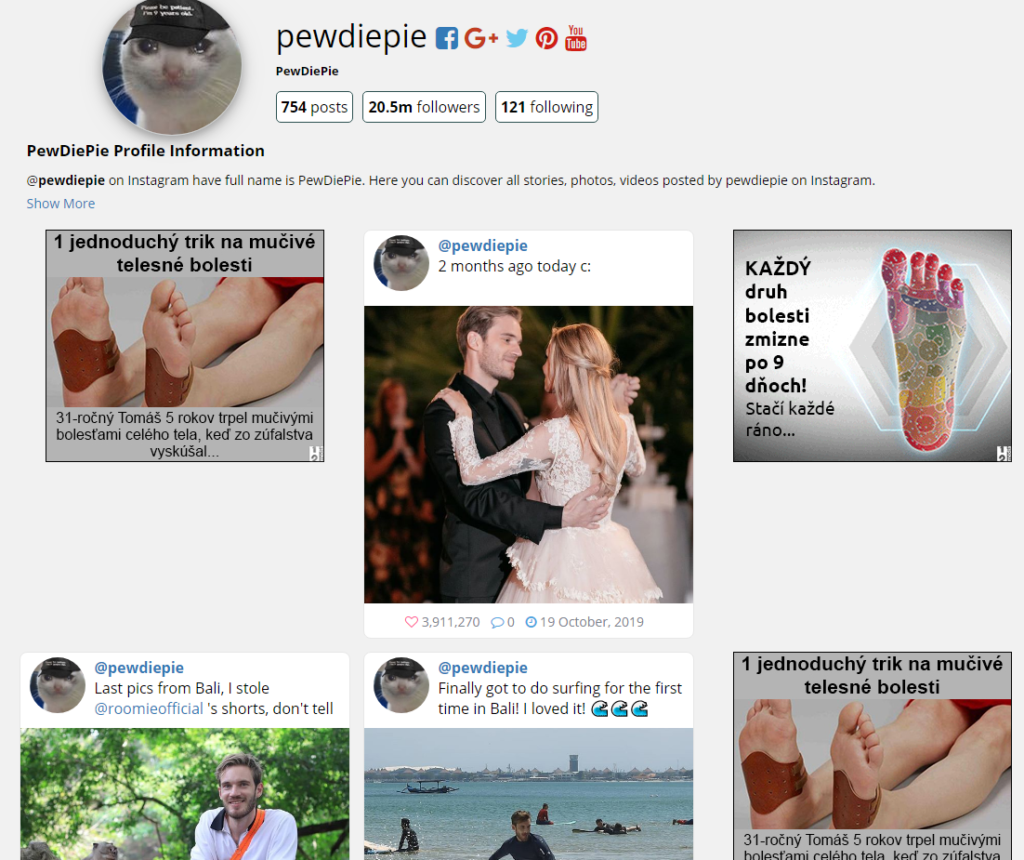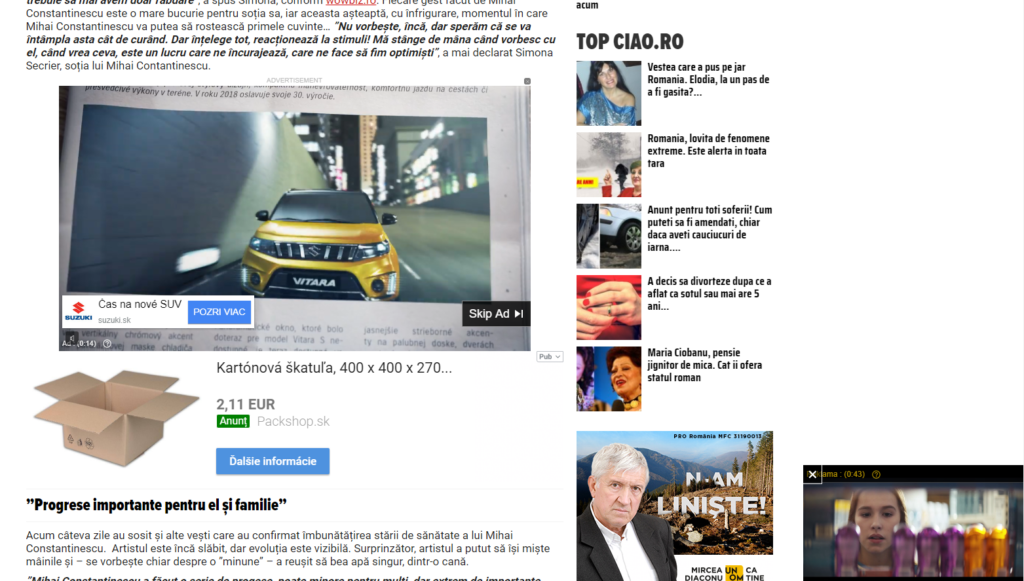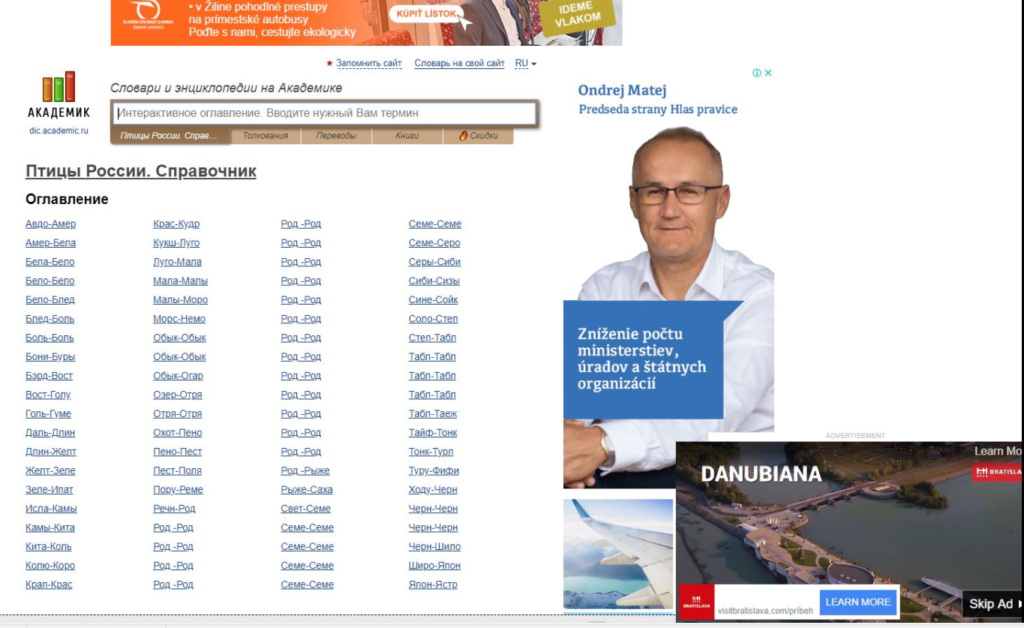As the complete set of Policy Rules composed by Google itself may incipiently look overwhelming, we decided to provide you with a pretty straightforward guide regarding this matter.
We at Fatchilli want to deepen our cooperation with publishers further. It is in our mutual interest to prevent any unfortunate Google’s Publisher policy violations due to unfamiliarity with all the rules.
While studying the full policy documentation is very unlikely, we think the best you can do is at least skim this article. It will get you through all the necessities, which you should be enlightened about.
Unfortunately, being blocked by Google due to the violation of their policies is pretty regular among publishers. A pool of wrongdoings, which may cause a very swift reaction from Google, is quite rich - however, almost all of them lead to deactivation of an account. And because the continuous process of retrieving already blocked accounts is complicated (and in most cases impossible), the best advice is not to get any close to a similar situation.
Generate valuable content & know the rules
The golden creed of your online activity should be providing content to your target audience, which offers real value. Always keep in mind that the exact duplication of your already published content or outright plagiarism is the total red flag.
Be cautious when working with age-restrictions
Also, be extremely careful when working with online content that might have some age restrictions. Be aware that the most common reason for account closures when it comes to the content itself, have been associated with violence, drugs, nudity, or blatant racist tropes. If you inadvertently trigger a policy warning, pay extreme attention to it and avoid the same mistake at all costs - next time, it will result in complete account suspension.

Easy way how to be demonetized
Another 'no-go' situation worth mentioning among some publishers is when a site poses a very few contents, yet trying to monetize them. That is very promptly being resolved by instant demonetization of a given post or account ban if repeated. Trying to overthink the system via such unethical, yet simple to detect ways will always lead to an undesired result.
If you're ever confused or have any doubts, do not hesitate to contact us or seek help online. It's always better to ask than to impulsively act without proper knowledge, which can lead to unfortunate consequences.
Operating a specific type of web? Pay attention.
Besides general content related restrictions, there are also a bunch of rules you have to keep in mind, based on your specialization. Most of them are the most crucial, and if you ever manage to break them, it will likely cost you the whole Ad account.
Fake news, plagiarism or scraping? Avoid at all costs.
If you are a news website provider, beware of already mentioned blatant plagiarism, content scraping, or operating without a proper license (if required). Be extremely careful also with double-checking the info you provide, as Google recently doubled down on devaluing fake news & disinformation publishers. The issue of fake news content may cause you even more severe troubles if a country where you reside has adopted additional legislative measures regarding this currently very actual topic.

Don't forget to moderate user-generated comments
Entertainment portals and mature-locked content providers have one additional duty. They are also fully responsible for user-generated content, which includes comments written by their audience, etc. topics/posts generated on community forums. The provider has to monitor all the content influx and accordingly filter inappropriate content, which may violate the rules. The best prevention mechanisms that are capable of significantly easing your burden of checking the user-made content are, for instance, Captchas, registration requirements, or active adult-language filters. Also, if someone places a link on your website, which redirects to inappropriate or illegal content, it's taken as a severe policy violation.
Origin of items you are trying to sell matters too
Hacking-related content, which involves illegally acquired & stolen digital keys, third party cracking tools, or anything associated with forbidden digital distribution/piracy, is strictly prohibited. It affects mainly technologically-center websites, so if you're a publisher of one of those, be informed.
Last but not least, hate speech (regarding individual personalities, religious groups, or institutional actors) filtering is one of the things which has been taken very seriously. Try to avoid politically sensitive subjects, which can very easily cross the red line.
Do not try to increase your web traffic artificially
Trying to gain an excessive amount of new traffic to your website artificially, is the kind of fraud which Google's algorithms can very quickly detect. Therefore you'll get permanently banned in a short span of time. With this type of violation, there is almost surely no coming back.
Automated cheating tools may end your business very swiftly
So, what you shouldn't surely do? Completely forget about utilizing any forms of automated bots, incoming traffic from unknown networks and applications, paid-to-click offers, or actively incentivizing your network to clicking on ads placed on your website. You'd be amazed by how advanced Google's counter-measures regarding this matter are.
Instead of tempting thoughts about these forbidden methods, we will be far better off by focusing on real and legit approaches, which will bring you more visitors.
Ad placement as another crucial factor to consider
Intrusive user experience is always bad for you, and a consumer of your content. By 'intrusive,' we mean overfilling your website with a disproportionate amount of ads. Additionally, you will not only disincentivize a lot of already existing visitors from coming back but also risk a penalty.

Direct ads over content is big NO
One of the most prevalent ad placement mistakes is putting advertisements over content (or the other way around) or setting up more than one ads per viewport on mobile devices. Especially with the recent surge of smartphones, Google decided to update some of its policies and focus more on content-to-ad balance. The official figure says no more than 30% of ads per page is recommended.
Always give visitors an option to close the ad
Another widespread kind of policy violation regarding ad placement is connected with video ads. If you decide to adopt an automatic video-ad which usually pop up right after user access the website, do not make it too intrusive. There must be a visible option to close the pop-up ad right after video launches, or a few seconds later. Making your pop-up ad completely sticky is another no-go.
Violation of those policies on a smaller scale may initially lead to losing the so-called arrow ads, which happens automatically without any warning from Google. Always try to avoid this from happening, as the next stage of the reaction is a violation warning, which will lead to more harsh outcomes.

Google cares about your ads from other platforms too
Beware that Google may block your access to its ad platform even if you're not directly violating policies that apply only to ads distributed via Google. For instance - if your website uses an additional ad platform (except the one from Google) and ad placement spread by another platform violates Google's policies, you may end up with a ban.
Still feeling unsure? We're here to help!
As we speak, we are preparing a bunch of additional support material for you that'll help you avoid any inconvinient situations while doing your business. Subscribe to our newsletter to stay informed.
Also, do not forget - if you feel unsure about anything mentioned in the blog, don't hesitate to reach out to us!


 Slovenčina
Slovenčina 


